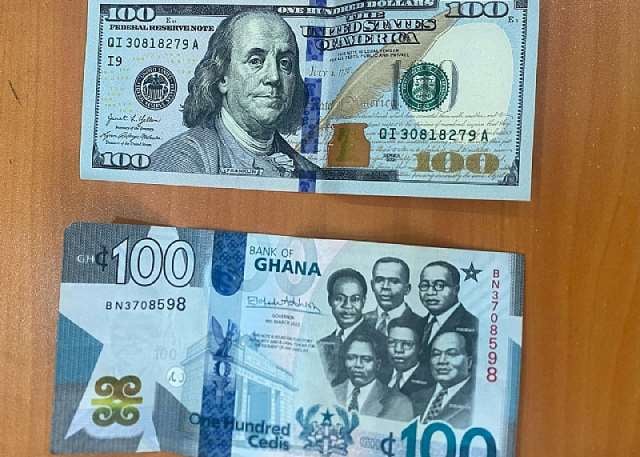The Ghanaian Cedi has continued its positive trajectory against the United States dollar, demonstrating resilience and strength in the foreign exchange market. As of Friday, May 30, 2025, the average buying rate for the Cedi stood at GHS9.95 per dollar, while the selling rate averaged GHS10.77. This signifies a favorable position for individuals looking to acquire dollars, as they would receive a relatively higher amount of Cedis in exchange. Forex bureaus, which play a significant role in currency exchange transactions, offered slightly different rates. Those exchanging dollars for Cedis could obtain GHS10.60 per dollar, while those converting Cedis to dollars would receive GHS11.50 per dollar. This disparity reflects the standard practice of forex bureaus incorporating a margin to facilitate their operations and generate profit.
The interbank market, where financial institutions exchange currencies, presented a slightly more competitive landscape. The buying rate for the dollar on the interbank market was GHS10.29, while the selling rate was marginally higher at GHS10.31. This narrow spread between buying and selling rates indicates a more efficient and liquid market, characteristic of transactions between large financial institutions. In comparison to forex bureau rates, the interbank market offers a slightly better deal for those exchanging Cedis for dollars, while the forex bureaus provide a slightly more advantageous rate for those seeking to acquire Cedis with dollars. The data for these exchange rates is sourced from Cedirates.com, a recognized platform in Ghana providing up-to-date information on currency and fuel prices, ensuring reliability and transparency.
The Cedi also exhibited favorable performance against other major international currencies. The British pound, another key currency in international trade, saw average exchange rates of GHS13.36 for converting pounds to Cedis and GHS14.48 for the reverse transaction. Similarly, the Euro, the official currency of the Eurozone, traded at GHS11.22 for exchanging euros for Cedis and GHS12.21 for converting Cedis to Euros. These rates reflect the relative strengths of the respective currencies against the Cedi and provide a clear picture of the currency exchange landscape for individuals and businesses engaging in transactions involving these currencies.
The Bank of Ghana, the country’s central bank, plays a pivotal role in the foreign exchange market. On the Bank of Ghana’s interbank market, the British pound’s selling rate was GHS13.90, while the euro traded at GHS11.71. These rates often serve as benchmarks for other financial institutions and influence the overall market dynamics. The central bank’s intervention and monetary policies can impact these rates, contributing to the stability and efficiency of the foreign exchange market. This information provides a valuable insight into the prevailing official exchange rates as determined by the central bank.
Money transfer services, which facilitate cross-border transactions, offered competitive rates for individuals remitting funds to Ghana. LemFi and Hurupay, two prominent money transfer platforms, provided rates of GHS10.11 and GHS10.30 per dollar, respectively, for transfers originating from the US or the UK. These services offer a convenient and often cost-effective alternative to traditional banking channels for sending money across borders. For transfers involving British pounds, LemFi provided a rate of GHS13.60, while Afriex offered a slightly higher rate of GHS14.07. Similarly, for Euro transfers, Afriex offered GHS11.83 per Euro, while LemFi’s rate stood at GHS11.35. These differing rates highlight the competitive landscape within the money transfer sector and provide options for individuals seeking the most favorable exchange rates for their remittances.
For digital subscriptions to popular services such as Netflix, Spotify, and Apple Music, payments using Visa and Mastercard incurred an exchange rate of GHS11.07 for both cards. This standardized rate simplifies transactions for subscribers and offers a consistent exchange rate regardless of the specific service being used. The use of Visa and Mastercard for these transactions highlights the increasing prevalence of digital payments and the integration of global payment systems into everyday transactions. This overview provides a comprehensive snapshot of the Ghanaian Cedi’s performance against major international currencies across various exchange platforms and provides valuable information for individuals and businesses navigating the foreign exchange market.


